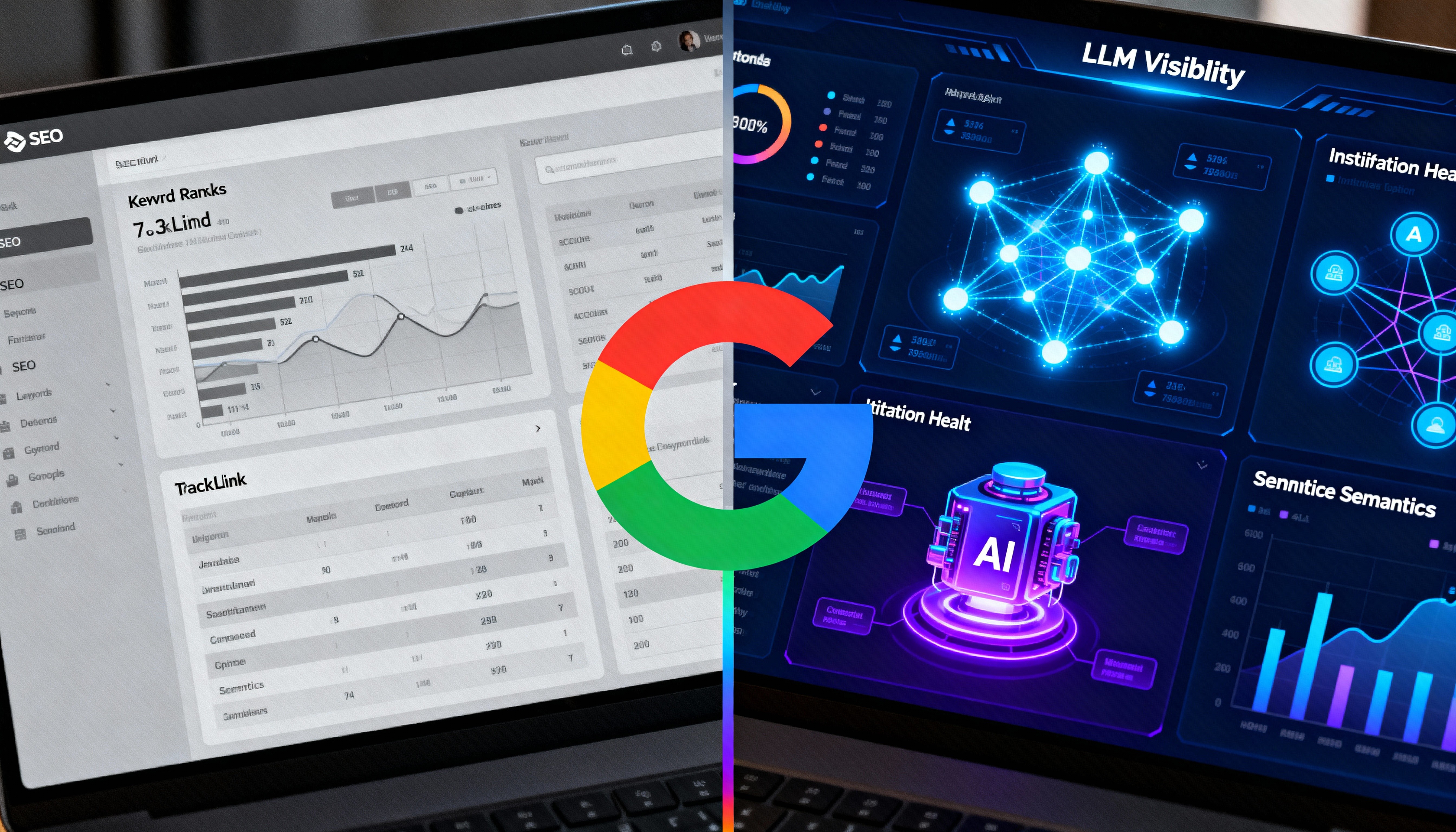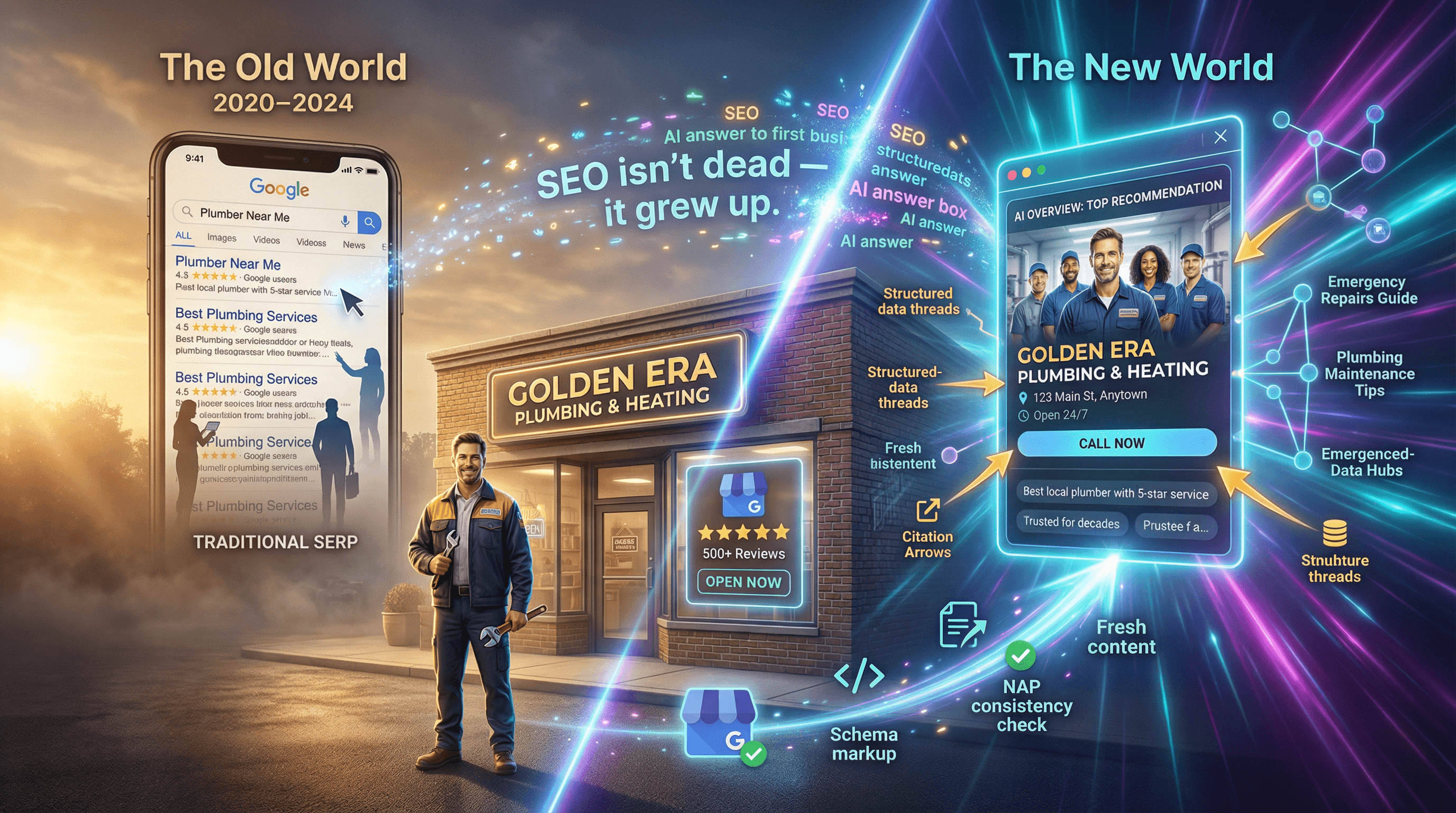Meta Ads
Discover how the Meta Andromeda algorithm is revolutionizing Meta Ads with unprecedented personalization, enhanced performance, and AI-driven strategies. Learn to adapt and grow.
Meta's ad system has gotten a pretty big upgrade, and it's called Andromeda. Honestly, it sounds like something out of a sci-fi movie, but it's actually changing how ads show up on Facebook and Instagram right now. This new AI engine is way smarter about figuring out who should see what ad, and it's making things pretty different for anyone trying to advertise online. It's not just a small tweak; it's a whole new way of doing things that you'll want to get a handle on if you're running ads.
Key Takeaways
Meta Andromeda is an AI system that picks which ads people see on Facebook and Instagram. It's much smarter and faster than the old way.
It looks at lots more information about users to show them ads they're more likely to care about, making ads feel more personal.
Because the AI is so good at matching, advertisers are seeing better results, like getting more money back for what they spend on ads.
The system can handle way more ads and users at the same time, making the whole ad delivery process quicker and bigger.
Advertisers now need to make lots of different kinds of ads, not just focus on who to target, because the AI can figure out the best match itself.
Understanding The Meta Andromeda Engine
The Core Functionality Of Meta Andromeda
So, what exactly is this Andromeda engine that everyone's talking about? Think of it as Meta's super-smart brain for figuring out which ads you actually see when you're scrolling through Facebook or Instagram. It's a big upgrade from how things used to work. Instead of just looking at basic stuff like your age or a few interests, Andromeda digs much deeper. It looks at tons of signals from your activity – what you click on, what you watch, even what you ignore – to get a really good picture of what you might be interested in right now.
The whole point is to make sure the ads you see are actually relevant to you, not just random noise. It does this by looking at millions of potential ads and quickly narrowing them down to a few thousand that have a good chance of being a match for you at that specific moment. It's all about precision and speed.
How Andromeda Enhances Ad Retrieval
Ad retrieval is basically the process of picking the right ad out of a massive pile. Andromeda makes this process way better. Before, the system might have had to guess a lot more. Now, Andromeda uses advanced machine learning to sift through a much larger pool of ads. It's like having a super-efficient personal shopper for ads. It considers way more factors than before – think thousands of times more data points – to figure out who you are and what you might want.
Here’s a simplified look at how it works:
Initial Scan: When you open an app, Andromeda starts looking at a huge number of ads.
Deep Analysis: It uses complex models to understand you and what each ad offers.
Narrowing Down: It quickly filters this down to a smaller group of ads that are likely to be a good fit.
Passing to Ranking: These selected ads are then passed on to the next stage for final selection.
This means the ads that make it to the final stage are already much more personalized and likely to be of interest, which is a win for everyone involved.
The system is designed to be incredibly fast, working in milliseconds to make these decisions. It has to be, given the sheer volume of users and ads.
The Role Of Deep Neural Networks In Andromeda
Deep neural networks are the secret sauce behind Andromeda's smarts. These are a type of artificial intelligence that's really good at finding patterns in huge amounts of data. For Andromeda, these networks help it understand complex relationships between users and ads that wouldn't be obvious otherwise. They can process all sorts of information – your past behavior, the context of what you're doing, and the details of the ad itself – to make a prediction about how likely you are to engage with it.
It's not just about simple rules anymore. These networks allow Andromeda to learn and adapt. Every interaction you have provides more data, which helps the neural networks get better and better at predicting what you'll like. This continuous learning is what makes Andromeda so powerful and keeps the ad experience fresh and relevant over time.
The Transformative Impact Of Meta Andromeda
Okay, so Meta's Andromeda engine isn't just some small tweak; it's a pretty big deal for anyone running ads on Facebook or Instagram. Think of it like upgrading from a basic calculator to a supercomputer for your ad campaigns. It's changing how ads get picked and shown, and honestly, it's making things way more interesting – and potentially more profitable.
Unprecedented Personalization Through Advanced Data Analysis
Remember when ads felt kind of generic? Andromeda is changing that. It looks at a massive amount of information – way more than before – to figure out what you might actually be interested in right now. It's not just about your age or a few hobbies anymore. It's digging into deeper patterns of what you do online, what you click on, and what you engage with. This means the ads you see are much more likely to be relevant to you, which is a win-win. You see stuff you might actually like, and advertisers get their message in front of people who are more likely to care.
The system can now process information on a scale that was previously unimaginable, allowing for ad selections that feel almost psychic in their accuracy. This shift means advertisers need to think less about broad strokes and more about the subtle signals users are sending.
Boosting Relevance And Performance Metrics
Because Andromeda is so good at matching ads to people, performance is seeing a real bump. Meta's own numbers show improvements in how well the system picks the right ads – we're talking about an increase in accuracy and better scores for ad quality. What does that mean for you? Better results. Advertisers who have started using these AI-driven features are reporting significant jumps in their return on ad spend (ROAS). It's finding customers and driving sales that might have been missed with older systems.
Here's a quick look at what that can mean:
Improved Ad Recall: The system gets better at remembering and showing ads that are relevant.
Higher Ad Quality Scores: Ads are rated as better quality because they're shown to the right people.
Increased ROAS: Advertisers are seeing a better return on their ad investment.
Achieving Speed And Scale In Ad Delivery
Running ads on a platform like Meta means making decisions in milliseconds. Andromeda's setup is built for speed. It can handle a lot more ad selections every second compared to what came before. This is super important because Meta's user base and the number of advertisers keep growing. The AI can manage this huge volume without slowing down, and it relies less on manual rules that used to be necessary to keep things running smoothly. It's like having a super-efficient traffic controller for ads, making sure everything flows quickly and smoothly, even during peak times.
Andromeda's Influence On Ad Strategy
So, Meta's Andromeda system is really shaking things up, and it means we have to think differently about how we run ads. It's not just about picking the 'right' people anymore; it's about giving the AI a whole bunch of good options to choose from. The game has definitely shifted from hyper-specific targeting to a much broader, more creative approach.
The Shift Towards Creative Diversification
Before Andromeda, a lot of our energy went into building super-detailed audience lists. We'd spend ages trying to nail down demographics, interests, and behaviors. Now, Andromeda is telling us that having a wide variety of ad creatives is way more important. Think of it like this: instead of trying to find one perfect key for one specific lock, we're making a whole bunch of different keys, and letting Andromeda figure out which one fits best for each person, at that exact moment.
This means we need to create:
Multiple versions of ads, using different images or videos.
Ads with varied text and calls to action.
Campaigns that test different angles and messages.
Volume And Diversity As New Success Factors
It sounds a bit counterintuitive, right? More ads, more variety? But it makes sense when you think about how Andromeda works. It's constantly learning about users and what they respond to. If you only give it a few ad options, it can get stuck. But if you give it a whole library of diverse creatives, it has a much better chance of finding a match that actually clicks with someone. This means campaigns that have a lot of different ad variations are likely to perform better.
The AI is doing the heavy lifting of figuring out who sees what. Our job is to give it the best possible material to work with, across a wide spectrum of styles and messages. This partnership between human creativity and AI optimization is where the real magic happens now.
Adapting Media Buying For The Andromeda Era
Media buying used to be a lot about manual adjustments and deep dives into audience segments. Now, it's becoming more about managing a larger pool of creative assets and trusting the system to do the distribution. We need to:
Develop a robust creative pipeline: Constantly produce new and varied ad content.
Monitor performance broadly: Look at how different creative types are doing, not just specific audience segments.
Embrace automation: Use tools like Advantage+ to let Andromeda handle the real-time decisions.
It's a big change, but honestly, it frees us up to focus more on the creative side and the overall strategy, letting the AI take care of the micro-optimizations.
Leveraging Meta Andromeda For Business Growth
So, how do you actually make this Andromeda thing work for your business? It's not just about letting the algorithm do its thing; you've got to be smart about it. The core idea is to feed the system the right information so it can find the best customers for you. Think of it like giving a super-smart assistant all the details they need to do their job perfectly.
Maximizing ROAS With AI-Driven Targeting
Return on ad spend, or ROAS, is the name of the game, right? Andromeda helps here by getting way more precise with who sees your ads. It looks at a ton of data points – way more than we ever could manually – to figure out who's most likely to actually buy something. This means your ad budget isn't wasted on people who aren't interested.
High-Quality Data is Key: Make sure your tracking is set up correctly. Accurate conversion data is like gold for Andromeda. Use first-party data if you have it, and make sure your Meta Pixel or Conversions API is firing on all cylinders.
Define Your Goals Clearly: Tell Andromeda what success looks like. Is it purchases? Leads? Sign-ups? The clearer you are, the better it can optimize.
Test and Learn: Even with AI, testing different approaches is smart. Try varying your audiences slightly or testing different ad sets to see what Andromeda finds best.
The system is designed to learn from every interaction. Providing it with clean, relevant data allows it to refine its understanding of your ideal customer, leading to more efficient ad delivery and better results over time. Don't underestimate the power of good data hygiene.
The Synergy Between Andromeda And Advantage+
Meta's Advantage+ suite works hand-in-hand with Andromeda. While Andromeda is the engine that figures out the best ad and audience, Advantage+ tools automate a lot of the campaign management. Things like Advantage+ Shopping Campaigns can automatically adjust bids, placements, and even creative combinations to find the most efficient path to a conversion. It’s like having a co-pilot that handles the routine flying so you can focus on the flight plan.
Embracing Automation For Enhanced Efficiency
This shift towards AI means less time spent on manual tweaks and more time on strategy. Instead of adjusting bids every hour, you're setting the overall direction and letting the system optimize within those boundaries. This frees up marketers to focus on bigger picture stuff, like developing compelling creative or understanding market trends. It’s a big change from the old days of micromanaging every campaign setting, but it’s where the performance gains are happening. For businesses looking to scale their advertising efforts without a proportional increase in staff, this automation is a game-changer. You can explore how these advancements are reshaping the Meta advertising landscape to better prepare your strategy.
The Technical Underpinnings Of Andromeda

Advanced Hardware Accelerating Ad Processing
So, how does Meta actually make this whole Andromeda thing work so fast? It’s not magic, though it might seem like it when you see ads pop up almost instantly. A big part of it comes down to the serious computing power behind the scenes. We're talking about specialized hardware, like GPUs (graphics processing units) and custom-built AI chips. These aren't your average computer parts; they're designed to crunch massive amounts of data and perform complex calculations at speeds that would make a regular processor weep. Think of it like having a whole team of super-fast mathematicians working on your ad in the blink of an eye. This hardware is what allows Andromeda to sift through millions of potential ads and pick the right ones in the milliseconds you have before an ad needs to be shown.
Real-Time Optimization Across Vast Datasets
Andromeda's real superpower is its ability to look at a ton of information and make smart choices on the fly. When you open up Facebook or Instagram, the system doesn't just guess. It's looking at all sorts of signals – what you've liked, what you've searched for, even what time of day it is. This constant stream of data allows Andromeda to adjust ad delivery in real-time, making sure the ads you see are as relevant as possible at that exact moment. It’s not just about broad categories anymore; it’s about understanding the nuances of your current behavior and context. This means the system can dynamically change which ads are shown, moving away from static targeting rules to a much more fluid and responsive approach.
Continuous Learning From User Behavior
One of the most impressive parts of Andromeda is that it doesn't just set it and forget it. The system is built to learn and get better over time. Every interaction a user has – a scroll, a click, a purchase, or even just how long they look at an ad – gets fed back into the system. This feedback loop is what makes Andromeda so smart. It’s like a student who studies every test result to figure out where they went wrong and how to improve for the next one. This continuous learning means that Andromeda gets progressively better at predicting what ads will actually grab someone's attention and lead to a desired action, like visiting a website or making a purchase. It’s this ongoing refinement that keeps the ad delivery system sharp and effective, adapting to changing user preferences and market trends.
Navigating The Andromeda Advertising Landscape

Rethinking Targeting In The Age Of AI
Okay, so Andromeda is here, and it's changing things up. For a long time, we all focused super hard on getting our targeting just right. We'd spend hours building these detailed audience lists, trying to pinpoint exactly who we wanted to reach. But with Andromeda, that whole game is shifting. The AI is getting so good at figuring out who's likely to be interested in what, that being overly restrictive with targeting might actually be holding you back. It's like having a super-smart assistant who can find the perfect person for your ad, but you're only letting them look in one tiny corner of the room. The system thrives on having room to explore and discover new connections.
The Importance Of Fresh And Diverse Creatives
This is a big one. Because Andromeda is so good at finding the right people, the actual ad itself becomes way more important. Think about it: if the AI can find a million people who might like your product, which ad are they going to respond to the most? The one that's generic, or the one that really speaks to them? That's where creative diversity comes in. You need to give the AI a bunch of different options – different images, different headlines, different calls to action. This way, Andromeda can test and learn which creative works best for different groups of people.
Develop multiple ad variations: Don't just create one ad and run with it. Make several versions.
Test different angles: Try highlighting different benefits or using different tones.
Refresh regularly: Keep things new and interesting to avoid ad fatigue.
The platform is now built to handle a huge number of ad variations. Instead of a penalty for having too many ads, there's now a real advantage. More creatives mean more chances for Andromeda to find the perfect match for each user.
Strategies For Success In The Andromeda System
So, how do you actually win in this new world? It's about working with the AI, not against it.
Embrace broader targeting: Give Andromeda the space to find new audiences. Start with wider settings and let the AI optimize.
Invest heavily in creative: This is your main differentiator. Produce a high volume of diverse, high-quality ad content.
Provide good data signals: Make sure your tracking is set up correctly so Andromeda can learn effectively from user interactions.
Utilize Meta's AI tools: Tools like Advantage+ are designed to work hand-in-hand with Andromeda, so use them!
It's a shift, for sure. We're moving from being hyper-focused on manual targeting to really concentrating on the quality and variety of our ads, trusting the AI to do the heavy lifting of delivery. It feels a bit like letting go, but the results can be pretty amazing when you get it right.
Wrapping It Up
So, that's the lowdown on Andromeda. It's pretty clear this isn't just another small update; it's a big shift in how Meta handles ads. For anyone running ads on Facebook or Instagram, especially for an online store, you really need to pay attention to this. The system is getting way smarter about matching ads to people, which means your ads can work better if you play along. It's all about giving the AI more options, especially with your ad creatives, and letting it do more of the heavy lifting. Think of it as working with the system, not against it. Those who get this and adjust their strategy are the ones who will likely see the best results going forward. It’s a new game, and Andromeda is definitely changing the score.
Frequently Asked Questions
What exactly is the Andromeda system?
Think of Andromeda as a super-smart computer brain for Meta's ads. It's like a really fast librarian who instantly finds the best books (ads) for each person looking for something to read (browsing Facebook or Instagram). It looks at tons of information to figure out what you'd like to see, making sure the ads you see are more likely to be interesting to you.
How is Andromeda different from older ad systems?
Older systems were a bit like using a basic map to find someone. Andromeda is like using a super-advanced GPS that knows everyone's habits and preferences. It can look at way more details about you and the ads to make much better matches, way faster than before. It's less about guessing and more about smart predictions.
Does Andromeda mean I need to target my ads differently?
Yes, it's a bit of a shift! Instead of trying to guess exactly who to show your ad to, it's now more helpful to give Andromeda lots of different ad styles and messages. The system is so smart, it can figure out which version of your ad will work best for different kinds of people. So, having many creative options is key.
Will Andromeda help my ads perform better?
That's the goal! Because Andromeda is so good at matching ads to people, ads are more likely to be relevant and get noticed. This can lead to better results, like more people clicking on your ads or buying your products. Many businesses have already seen improvements in how much money they make back from their ad spending.
Is Andromeda all about just one type of ad?
Not at all! Andromeda actually thrives on variety. It can handle and sort through millions of different ad ideas. This means if you have many different pictures, videos, or messages for your ad, Andromeda can test them out and find the perfect fit for different users. It rewards creativity and new ideas.
How does Andromeda learn what people like?
Andromeda learns constantly by watching what people do on Meta's apps. Every time someone scrolls, likes, clicks, or buys something, that information helps Andromeda get smarter. It uses this ongoing learning to make even better guesses about which ads will capture someone's attention next time.
























































































